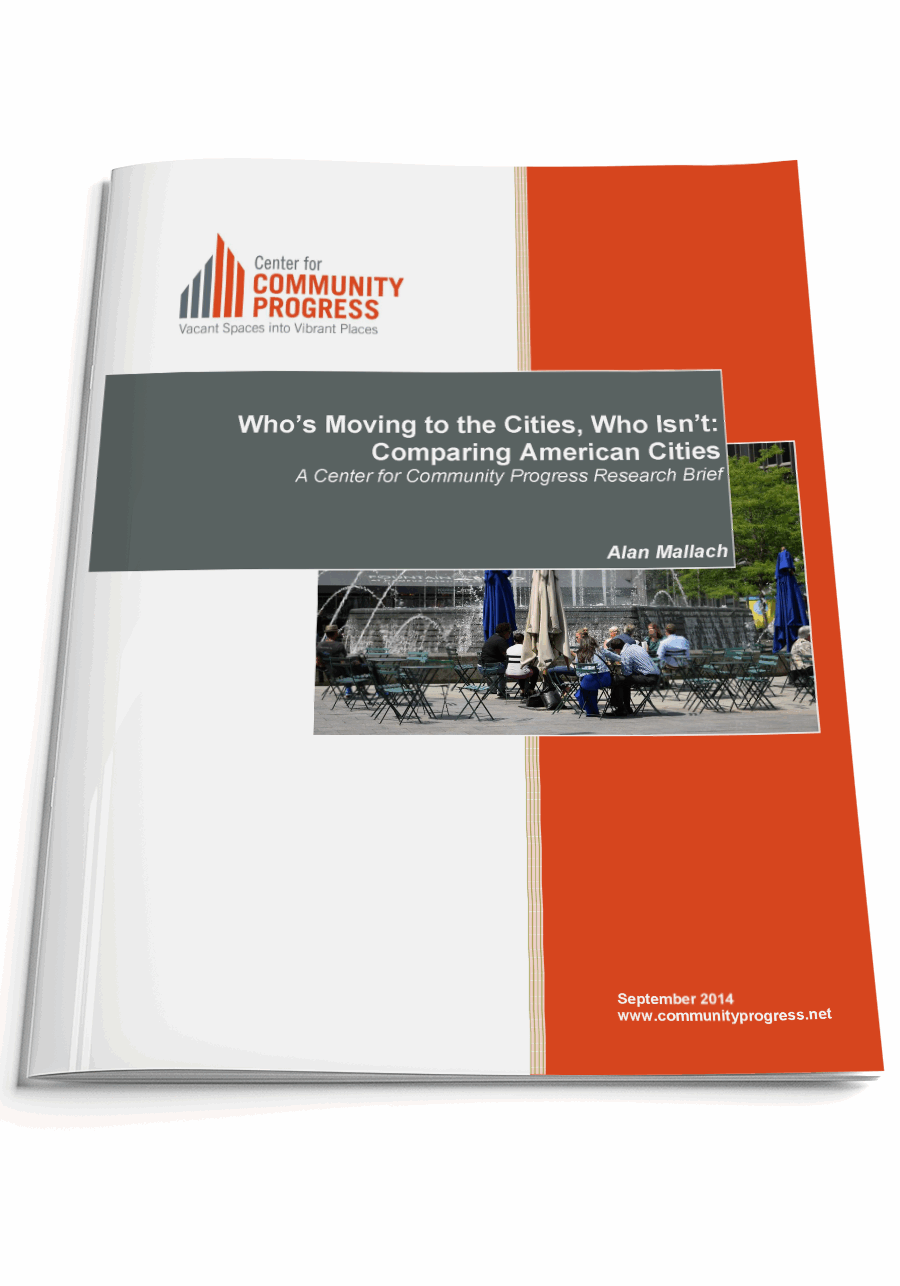Who’s Moving to the Cities, Who Isn’t
Comparing American Cities
Published: September 2014
Geography: Arizona, California, Colorado, District of Columbia, Florida, Georgia, Illinois, Maryland, Massachusetts, Michigan, Missouri, Nevada, New Jersey, New York, Ohio, Oregon, Pennsylvania, Texas, United States, Washington, Wisconsin
Author(s): Alan Mallach (Senior Fellow)
The fact that something is happening in American cities is beyond dispute…Is it just about the march of the millennials to the cities, or, as many writers claim, is it about a shift in preferences cutting across generations; and is it affecting all American cities to roughly the same extent, or are certain cities benefiting, while others are falling behind? More specifically: how are these trends affecting the nation’s distressed older industrial cities, the legacy cities?
The issue here is not so much overall migration, as it is the movement of people in the middle and upper income ranges of the American demographic profile who have been severely under-represented in most central cities since the middle-class flight that followed the end of the Second World War. The ability of the cities to draw and hold an economically diverse population is an important element in whether they can retain, or regain, economic vitality.
By looking at one highly important indicator – where college-educated adults at different age levels are living and where they are moving – this research brief attempts to offer some initial thoughts on those questions.
At the same time, it is important to stress that this is only one indicator of change. Real and sustainable urban transformation will require change in many other aspects of the urban scene, and a readiness to confront the issues of poverty, lack of opportunity and inequality that continue to plague our cities.

Published: September 2014
Geography: Arizona, California, Colorado, District of Columbia, Florida, Georgia, Illinois, Maryland, Massachusetts, Michigan, Missouri, Nevada, New Jersey, New York, Ohio, Oregon, Pennsylvania, Texas, United States, Washington, Wisconsin
Related Publications
Other Related Content
Subscribe to join 14,000 community development leaders getting the latest resources from top experts on vacant property revitalization.
